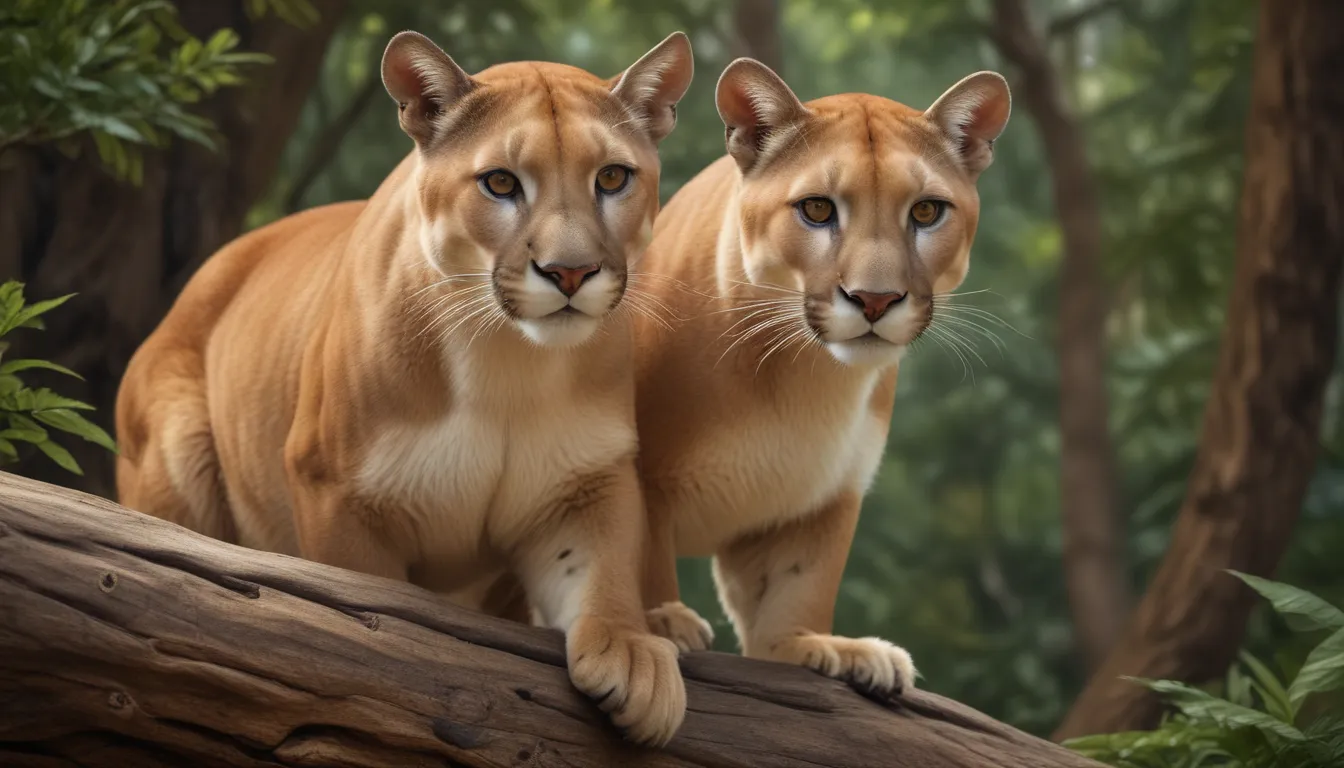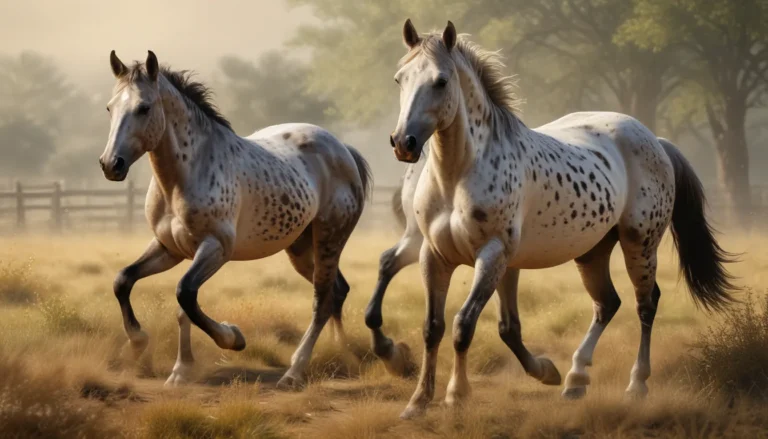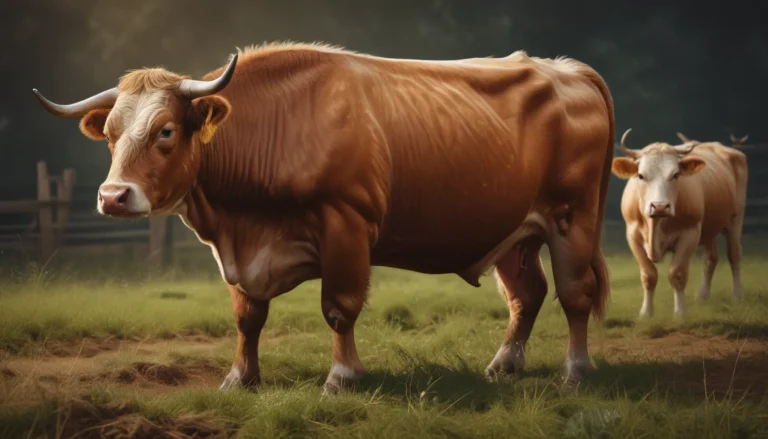The pictures we use in our articles might not show exactly what the words say. We choose these pictures to make you interested in reading more. The pictures work together with the words but don’t take their place. The words still tell you the important facts.
Cougars, also known as mountain lions or pumas, are captivating creatures that roam across the vast landscapes of North and South America. These majestic big cats with their sleek appearance, unmatched agility, and solitary nature have intrigued nature enthusiasts and animal lovers alike. In this exploration, we will delve into 18 intriguing facts about cougars that will broaden your understanding and admiration for these elusive predators. From their unique hunting techniques to their remarkable adaptability to diverse habitats, cougars stand out as a true marvel in the animal kingdom. Join us on a journey to uncover some fascinating facts about these magnificent big cats.
Key Takeaways:
- Cougars are solitary, adaptable hunters with exceptional strength and agility, playing a vital role as apex predators in maintaining ecosystem balance.
- Their extensive range spans from Canada to Argentina, with successful population rebounds in certain areas due to conservation efforts, continuing to captivate scientists and nature enthusiasts.
Exploring the World of Cougars
Cougars have an expansive territory, stretching from the northern regions of Canada to the southern tip of Argentina. Their ability to thrive in various habitats makes them one of the most successful wild cats in the Americas.
1. Excellent Climbers:
Cougars exhibit incredible agility and are skilled climbers. Their powerful hind legs enable them to leap up to 20 feet in a single bound, allowing them to traverse the rugged terrain of their habitat effortlessly.
2. Keen Sense of Hearing:
One of the key survival skills of cougars is their acute sense of hearing. They can detect even the slightest rustle or movement in their surroundings, aiding them in hunting and avoiding potential threats.
3. Diverse Vocalizations:
From purring and hissing to growling and screaming, cougars showcase a wide range of vocalizations. Each sound serves a specific purpose, whether it is to communicate with other cougars or to warn off potential rivals.
4. Solitary Nature:
Unlike some other big cats, cougars are solitary beings. They prefer to roam and hunt alone, marking their territories with scent markings and vocalizations to avoid conflicts with other cougars.
5. Impressive Adaptability:
As opportunistic hunters, cougars have a varied diet, preying on animals ranging from deer and elk to small mammals, and occasionally, livestock in regions where human settlements intersect with their habitats.
6. Extraordinary Strength:
Cougars are muscular animals known for their strength and powerful paws. They can overpower prey larger than themselves, utilizing their strong jaws and sharp claws for a successful hunt.
7. Master Ambush Predators:
Cougars employ stealth and their exceptional leaping ability to surprise their prey. They are silent stalkers, patiently waiting for the perfect moment to strike a fatal blow to the neck.
8. Lighting Fast Runners:
In pursuit of prey, cougars can reach speeds of up to 50 miles per hour in short bursts. This impressive speed enables them to quickly close the gap between themselves and their target.
9. Largest Range in the Western Hemisphere:
Cougars hold the record for having the largest range of any native terrestrial mammal in the Americas. Depending on food availability and suitable habitat, their territories can span hundreds of square miles.
10. Exceptional Night Vision:
With their large eyes and specialized retina, cougars have outstanding night vision. This gives them a significant advantage while hunting during dusk, dawn, and the darkness of night.
11. Skilled Swimmers:
Although primarily terrestrial creatures, cougars are proficient swimmers when needed. They can navigate bodies of water such as rivers and lakes in their relentless pursuit of prey.
The Magnificent Cougars Around the World
Cougars are known by various names across different regions. In North America, they are commonly called cougars or mountain lions, while in Central and South America, they go by the names pumas or panthers.
12. Lifespan of Cougars:
In the wild, cougars can live up to 10-13 years on average. However, in captivity under proper care and conditions, they have been known to live well into their late teens and even early twenties.
13. Comeback Success Stories:
Thanks to conservation efforts and habitat protection, cougars have made remarkable comebacks in areas where they were once scarce. This resurgence underscores the significance of preserving their natural habitats.
14. Role in Ecosystems:
As apex predators, cougars play a crucial role in maintaining ecosystem balance. By regulating prey populations, they contribute to promoting healthy ecosystems and biodiversity.
Embracing the World of Cougars
Conclusion
Overall, cougars, whether known as mountain lions or pumas, are captivating animals inhabiting diverse regions of the Americas. With their remarkable agility, stealth, and hunting prowess, they serve as apex predators crucial to maintaining ecosystem harmony. These solitary and elusive beings have adapted to thrive in various habitats, from mountains to deserts.
Understanding the behavior, habitat, and biology of cougars is essential for their conservation and peaceful coexistence with humans. By gaining insight into cougars, we can develop a deeper appreciation for their significance and work towards protecting their populations.
Next time you encounter a cougar fact, remember that these incredible predators play a crucial role in upholding the balance of nature, deserving our respect and protection.
FAQs
Q: How big do cougars grow?
A: Male cougars can reach up to 8 feet in length, including their tail, and weigh between 120 to 220 pounds. Females are slightly smaller, measuring around 7 feet in length and weighing between 80 to 140 pounds.
Q: What do cougars eat?
A: Cougars are carnivores, primarily feeding on deer, elk, and other ungulates. They are opportunistic hunters and will also target smaller mammals like rabbits, rodents, and occasionally, livestock.
Q: Are cougars dangerous to humans?
A: While cougars generally avoid interactions with humans, they can be dangerous if threatened or cornered. It is essential to respect their space and follow safety guidelines, especially in areas known for cougar activity.
Q: How far can cougars jump?
A: Cougars are incredibly agile, capable of jumping distances of up to 30 feet horizontally and over 15 feet vertically in a single leap. This exceptional leaping ability aids in their navigation and hunting.
Q: How long do cougars live?
A: In the wild, cougars have an average lifespan of 8 to 13 years. However, in captivity, they can live up to 20 years or more under protection from various threats.
As you delve into the world of cougars and explore these fascinating facts, remember to appreciate the invaluable role they play in the ecosystem. Let's celebrate and protect these magnificent creatures for generations to come.






